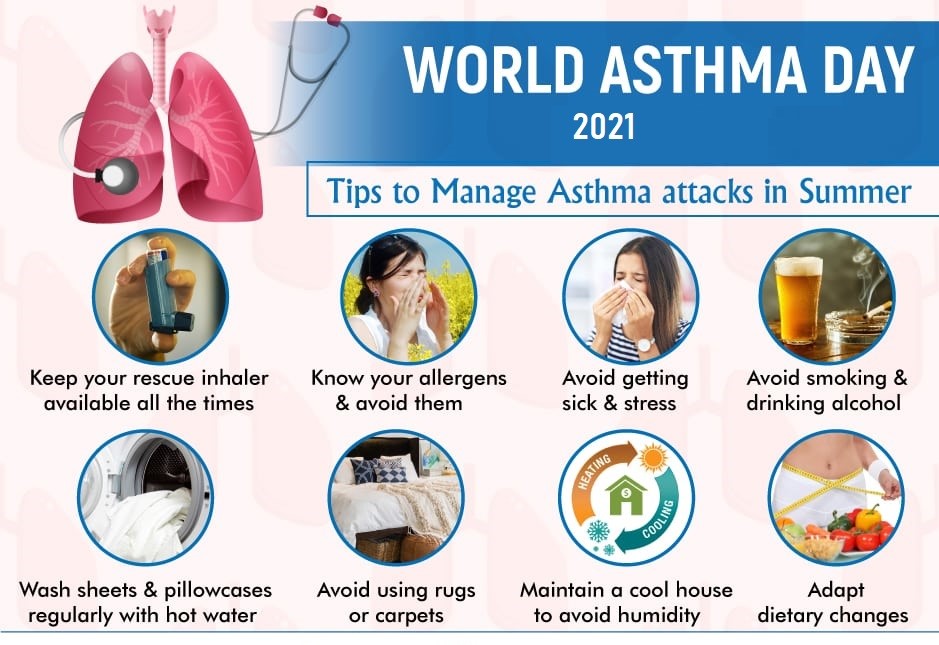World Asthma Day
World Asthma Day (WAD) (May 5, 2021) is organized by the Global Initiative for Asthma, a World Health Organization collaborative organization founded in 1993. WAD is held each May to raise awareness of Asthma worldwide. This year’s World Asthma Day theme is “Uncovering Asthma Misconceptions”.
Asthma is a condition in which your airways narrow and swell and may produce extra mucus. This can make breathing difficult and trigger coughing, a whistling sound (wheezing) when you breathe out and shortness of breath. For some people, asthma is a minor nuisance. For others, it can be a major problem that interferes with daily activities and may lead to a life-threatening asthma attack.

Symptoms
- Shortness of breath
- Chest tightness or pain
- Wheezing when exhaling, which is a common sign of asthma in children
- Trouble sleeping caused by shortness of breath, coughing or wheezing
- Coughing or wheezing attacks that are worsened by a respiratory virus, such as a cold or the flu
- Increasing difficulty breathing, as measured with a device used to check how well your lungs are working
- Exercise-induced asthma,which may be worse when the air is cold and dry
- Occupational asthma,triggered by workplace irritants such as chemical fumes, gases or dust
- Allergy-induced asthma,triggered by airborne substances, such as pollen, mold spores, cockroach waste, or particles of skin and dried saliva shed by pets.
Risk factors
- If you have a parent with asthma, you are three to six times more likely to develop asthma than someone who does not have a parent with asthma.
- Respiratory problems during infancy and childhood can cause wheezing.
- Some children who experience viral respiratory infections go on to develop chronic asthma. Having an allergic condition, such as atopic dermatitis (eczema) or allergic rhinitis (hay fever), is a risk factor for developing asthma.
- Cigarette smoke irritates the airways. Smokers have a high risk of asthma. Those whose mothers smoked during pregnancy or who were exposed to secondhand smoke are also more likely to have asthma.
- Exposure to the main component of smog (ozone) raises the risk for asthma. Those who grew up or live in urban areas have a higher risk for asthma.
- Children and adults who are overweight or obese are at a greater risk of asthma. Although the reasons are unclear, some experts point to low-grade inflammation in the body that occurs with extra weight.
Prevention
- Keep away from chemicals and products that have earlier caused breathing problems.
- Keep away from allergens such as dust or mould.
- Take allergy shots that protect the body against asthmatic triggers.
- Take preventive medication, as the doctor prescribes.
Treatment
Treatment usually involves learning to recognize your triggers, taking steps to avoid triggers and tracking your breathing to make sure your medications are keeping symptoms under control. In case of an asthma flare-up, you may need to use a quick-relief inhaler.

